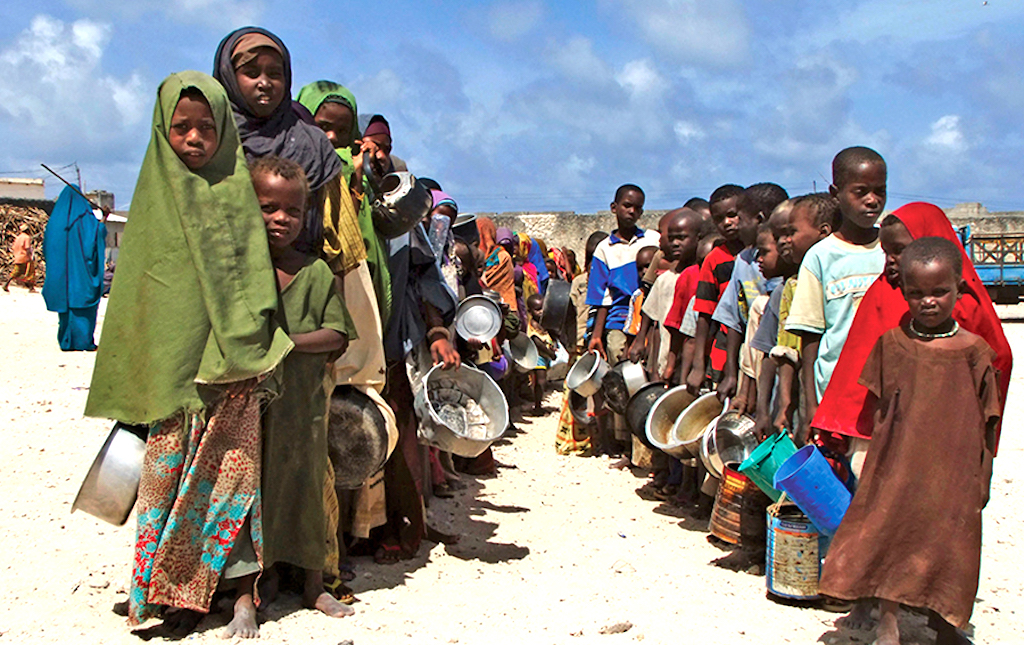Nigeria, a country with a rich agricultural heritage and abundant natural resources, continues to grapple with the challenge of food insecurity. In August 2023, the Integrated Food Security Phase Classification of Acute Malnutrition (IPC AMN) preliminary report provided insight into the state of food insecurity in Nigeria, particularly in the northern states of Borno, Adamawa, and Yobe (BAY), while there have been notable improvements, there remain significant concerns about the nutritional well-being of children under five and the overall food security situation in the region.
The August 2023 IPC AMN report revealed some encouraging statistics. The burden of acute malnutrition among children, under five in the BAY states, has shown a 25 per cent improvement, decreasing from 2 million to 1.53 million when compared to the same period in the previous year. This improvement can be attributed to several factors, including the early rollout of lean season surge actions, an increased scale of nutrition assistance, and progress in mitigating contributing factors such as conflict-induced displacements, acute watery diarrhoea (AWD) or cholera cases, and camp closures. The collective efforts of humanitarian organisations have certainly made a difference. While there are signs of progress, it is essential to remain vigilant, as food insecurity and nutrition challenges continue to affect certain areas, particularly LGAs like Jere, Maiduguri, and Machina in Borno.
In August 2023, a high prevalence of acute malnutrition, amounting to 19.3 per cent, was observed among individuals displaced from hard-to-reach communities, signaling a critical nutrition situation in these areas (IPC Acute Malnutrition Phase 4). The number of severely malnourished children admitted to treatment programmes has also increased significantly. In August 2023 alone, 52,017 children were admitted across the BAY states, representing a 30 per cent increase compared to the same period in the previous year. The situation remains challenging, even though bed capacity at stabilisation centres and outpatient therapeutic programme sites has increased, and more facilities for treating Severe Acute Malnutrition (SAM) cases have been established.
Response efforts
To combat the alarming situation, humanitarian organisations executed a highly prioritised June to September lean season plan in the BAY states. This plan encompasses scaling up essential food and nutrition assistance, as well as supporting interventions such as clean water and sanitation, healthcare, protection, and logistics. Approximately 50 per cent of the required $396 million has been received for this effort, which is part of the 2023 Humanitarian Response Plan (HRP) for Nigeria. At the end of August 2023, these efforts had reached a significant number of people. The health sector, for instance, reached 34 percent of the 1.4 million individuals targeted for the lean season. The Water and Sanitation Hygiene (WASH) sector reached 56 per cent of its 3 million people target. In addition, the food security sector reached approximately 2.5 million of the 2.6 million people targeted for the lean season with food assistance. Partners in the nutrition sector reached 582,000 of the 1 million children and women targeted for preventive and treatment services.
The way forward
Despite these efforts, challenges remain on the horizon. Food insecurity persists due to factors such as food and economic crises, sharp spikes in food prices, and below-average rainfall affecting food production. Additionally, health threats like the outbreak of diphtheria and alerts of flooding in some LGAs could potentially reverse the improvements made. To ensure the well-being of vulnerable populations, continued support for food and nutrition interventions is crucial, especially as the lean season is starting early and ending late. Heightened risks of waterborne and vector-borne diseases, such as acute watery diarrhoea, cholera, and malaria, make it imperative to sustain these efforts. The fight against food insecurity and malnutrition in Nigeria is ongoing. The United Nations Office for the Coordination of Humanitarian Affairs (UNOCHA) reported that while progress has been made in certain areas, challenges persist, necessitating sustained commitment and collaboration from governments, humanitarian organizations, and the international community. As the lean season approaches, it is crucial to redouble efforts to ensure the well-being of vulnerable populations and prevent further suffering in the land.

